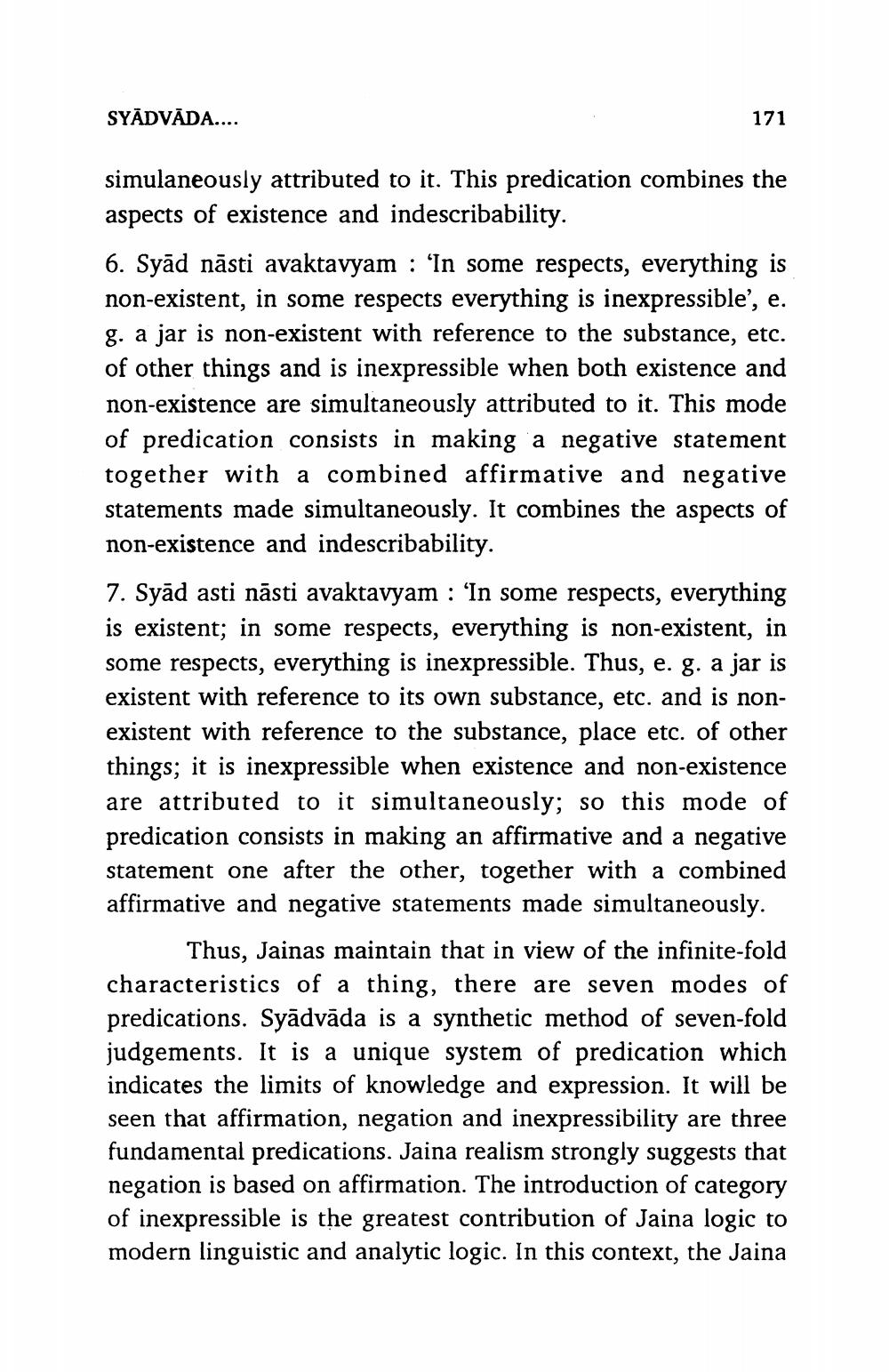________________
SYĀDVĀDA....
171
simulaneously attributed to it. This predication combines the aspects of existence and indescribability.
6. Syād nāsti avaktavyam : 'In some respects, everything is non-existent, in some respects everything is inexpressible', e. g. a jar is non-existent with reference to the substance, etc. of other things and is inexpressible when both existence and non-existence are simultaneously attributed to it. This mode of predication consists in making a negative statement together with a combined affirmative and negative statements made simultaneously. It combines the aspects of non-existence and indescribability. 7. Syād asti nāsti avaktavyam : 'In some respects, everything is existent; in some respects, everything is non-existent, in some respects, everything is inexpressible. Thus, e. g. a jar is existent with reference to its own substance, etc. and is nonexistent with reference to the substance, place etc. of other things; it is inexpressible when existence and non-existence are attributed to it simultaneously; so this mode of predication consists in making an affirmative and a negative statement one after the other, together with a combined affirmative and negative statements made simultaneously.
Thus, Jainas maintain that in view of the infinite-fold characteristics of a thing, there are seven modes of predications. Syādvāda is a synthetic method of seven-fold judgements. It is a unique system of predication which indicates the limits of knowledge and expression. It will be seen that affirmation, negation and inexpressibility are three fundamental predications. Jaina realism strongly suggests that negation is based on affirmation. The introduction of category of inexpressible is the greatest contribution of Jaina logic to modern linguistic and analytic logic. In this context, the Jaina




